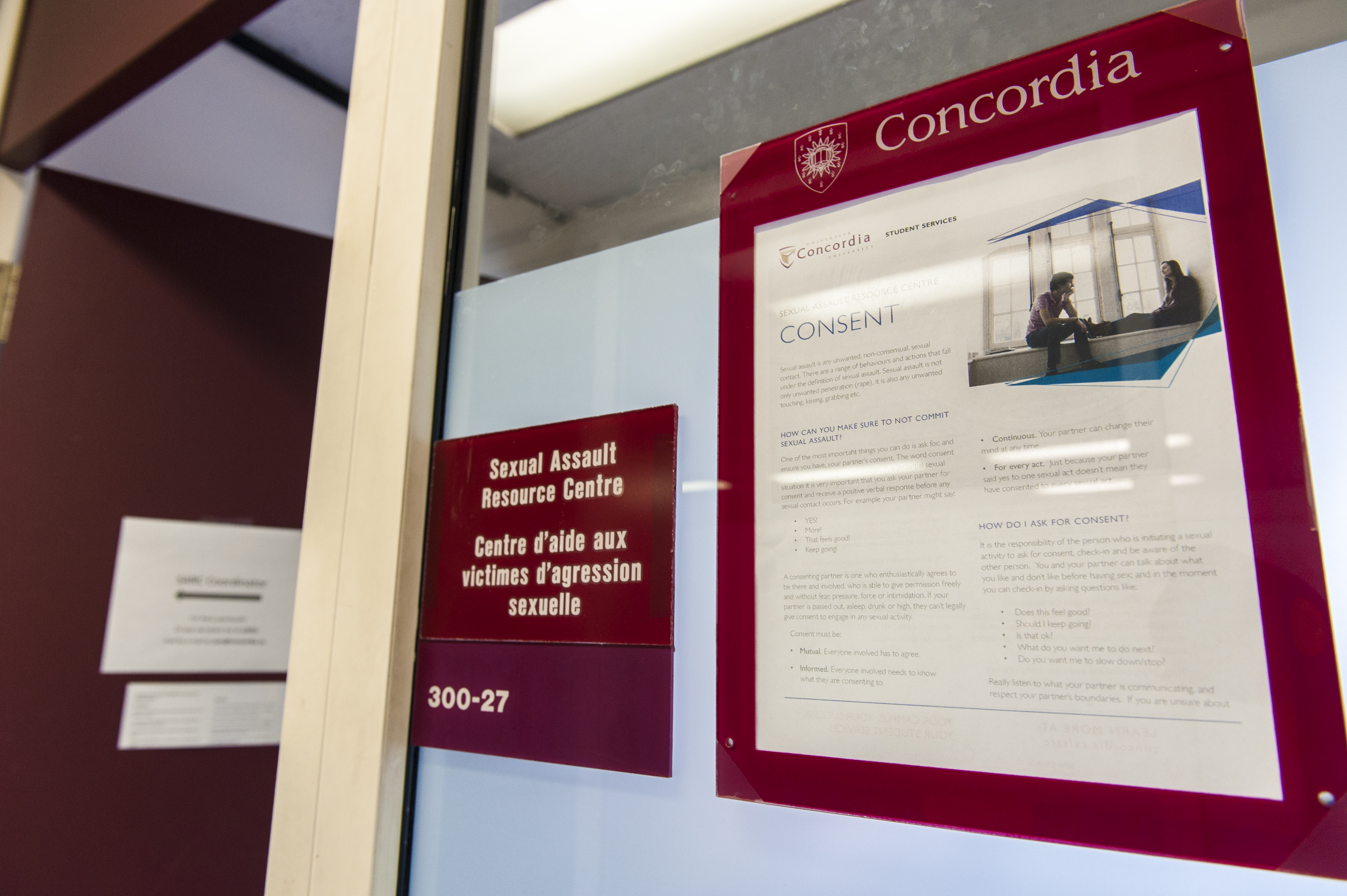Concordia’s Sexual Assault Resource Centre hosted a workshop on bystander intervention
Concordia’s Sexual Assault Resource Centre hosted a bystander intervention workshop for students as part of Concordia’s CSU Wellness Day on Sept. 15. The purpose of the workshop was to increase safety on campus and provide support for survivors of sexual assault.
Jennifer Drummond, coordinator of the Sexual Assault Resource Center, led the workshop. She explained that sexual violence is an umbrella term that includes sexual abuse, sexual assault and sexual harassment. She defined sexual assault as involving non-consensual sexual contact such as kissing or penetration, while sexual harassment constitutes unwanted looks, comments or jokes of a sexual nature.
Drummond said “bystander intervention” is when a person sees a potentially dangerous-looking situation and speaks up about someone else’s language or behaviour, whether it is inappropriate, hurtful, abusive or dangerous. “It’s about preventing situations from escalating to sexual violence. We teach people how to intervene and to become active bystanders. It helps to shift the culture to one of consent and respect,” she said.
Drummond said it is important to have these kinds of workshops because sexual violence is all too common. According to Statistics Canada, one in four women will experience some form of sexual violence during their lifetime—the most vulnerable period being between the ages of 18 and 24. In addition, one in six men will face sexual violence, but it is usually more common during childhood.
Drummond said that there are many reasons why a bystander would not want to intervene, including due to the “bystander effect.”
“[The bystander effect] is a phenomenon [where] the more bystanders are witnessing a violent situation, the less likely … anyone will do anything because everyone thinks that someone else will intervene and no one does,” Drummond explained.
Many bystanders tend to feel awkward about intervening or think that it’s none of their business, but it is better to be safe than sorry, Drummond said. Another barrier for intervention is safety. Drummond said she does not encourage people to intervene if it would put their own safety at risk. In such cases, Drummond suggested getting support from friends, other bystanders or even the police.

Drummond also explained the four “D”s of intervention strategies, which are crucial actions for every bystander think about before taking action. The fours “D”s are distract, direct, delegate and delay. The first “D” is about distracting the victim or the attacker with an irrelevant question. This takes the victim of the harassment away from the situation, allowing them to find an escape route. “Direct” intervention is about directly addressing the situation and calling out the attacker’s inappropriate behaviour. The “delegate” method involves getting immediate help from other people such as friends, other bystanders or an authoritative figure to intervene in the situation. “Delaying” works as a last resort. If for some reason or other, a friend insists she or he doesn’t need help, or is comfortable with the person or people accompanying them, then you can delay your intervention to the next day. You basically don’t want to force your help on, but you want to check in with the victim as soon as possible.
The Sexual Assault Resource Centre also offers other workshops, trainings and presentations about consent and bystander intervention.
If you are a victim of sexual violence, please contact the toll-free helpline for victims: 1-888-933-9007, or visit Concordia University’s Sexual Assault Resource Centre located at the Sir George Williams Campus in room GM-300.27.
For immediate danger on campus, you can reach security at 514-848-3717.




